Alcohol legislation in the United States
Alcohol legislation in the United States is a complex and varied landscape, shaped by federal mandates and state-specific regulations. The 21st Amendment to the U.S. Constitution ratified in 1933, repealed national Prohibition and granted states the authority to regulate alcohol within their borders. This decentralization has led to a diverse array of laws concerning the sale, distribution, and consumption of alcoholic beverages across the country.
Table of Contents
Federal Law and State Authority
The 21st Amendment, ratified in 1933, repealed Prohibition and granted individual states the authority to regulate alcohol within their borders. This includes decisions on:
- Whether to allow the sale of alcohol in the state.
- Rules for importing alcohol into the state.
- Distribution methods within the state.
- Possession laws specific to the state.

This decentralized approach has led to a patchwork of regulations, with some states exercising strict control over alcohol distribution, while others permit private enterprises to manage sales. For instance, 17 states are known as “control states,” where the state government controls at least one aspect of alcohol sales.
Minimum Drinking Age and Exceptions
While the federal government sets a minimum legal drinking age of 21, states have the discretion to establish exceptions under certain conditions. For example, some states permit underage consumption of alcohol for religious ceremonies, educational purposes, or when provided by a parent or guardian. These exceptions vary widely, reflecting local customs and legislative priorities.
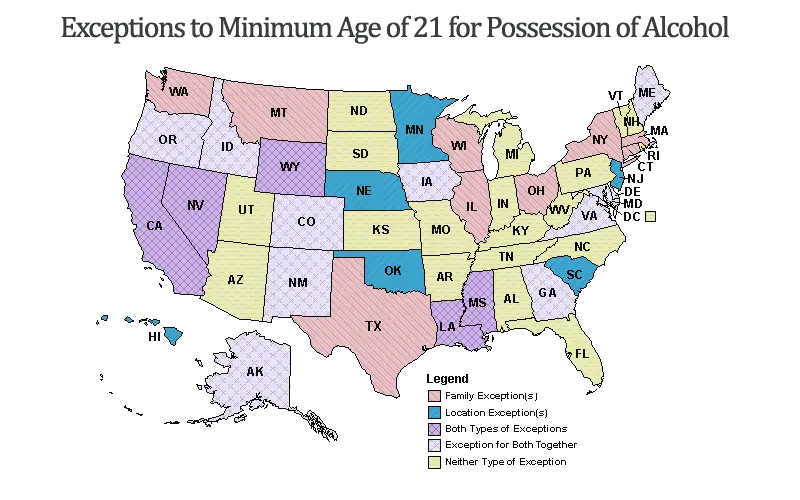
Drinking in Public Spaces
Public consumption of alcohol is generally regulated at the local level, leading to a variety of laws across the country. Some cities have designated “Entertainment Districts” where public drinking is permitted, while others enforce strict open-container laws prohibiting alcohol consumption in public spaces. These regulations are often influenced by historical precedents and community standards.
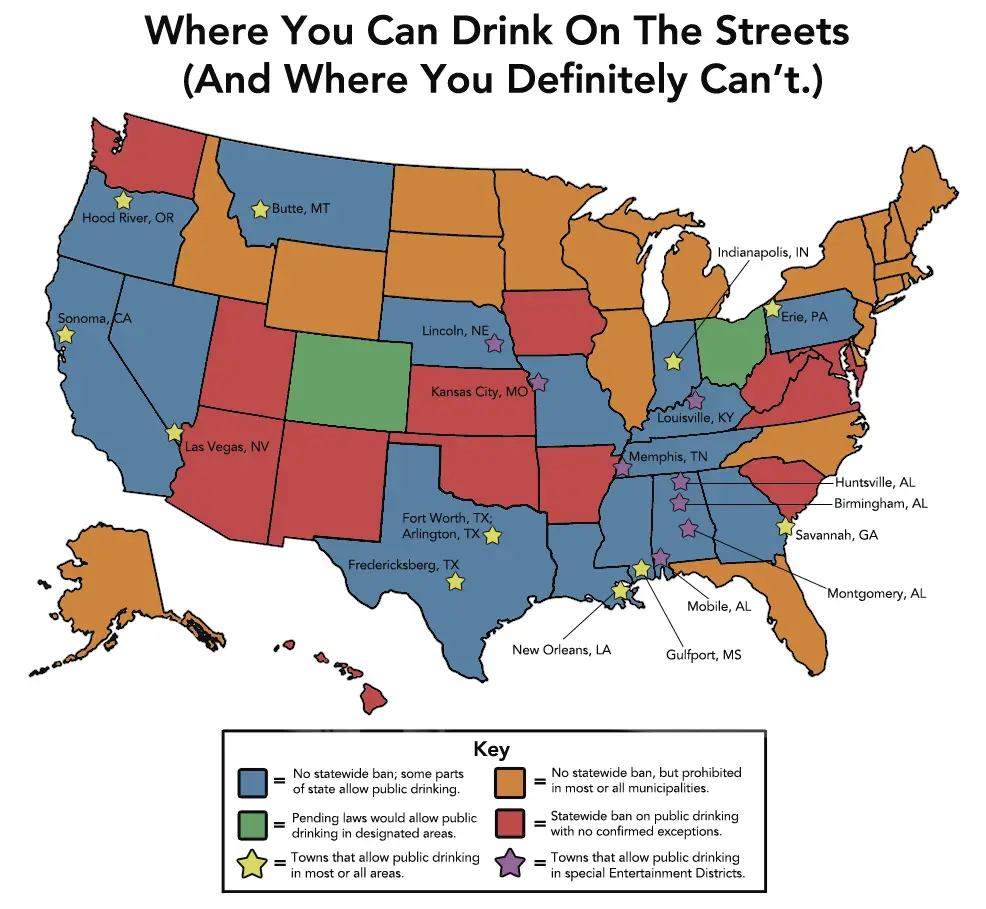
Sunday Alcohol Restrictions (Blue Laws)
Blue laws, also known as Sunday laws, restrict or ban certain activities on Sundays, traditionally for religious reasons. In the context of alcohol sales, these laws can prohibit the sale of alcohol on Sundays or limit the hours during which alcohol can be sold. Currently, 28 states have some form of blue laws, though the specifics vary by state and even by county.
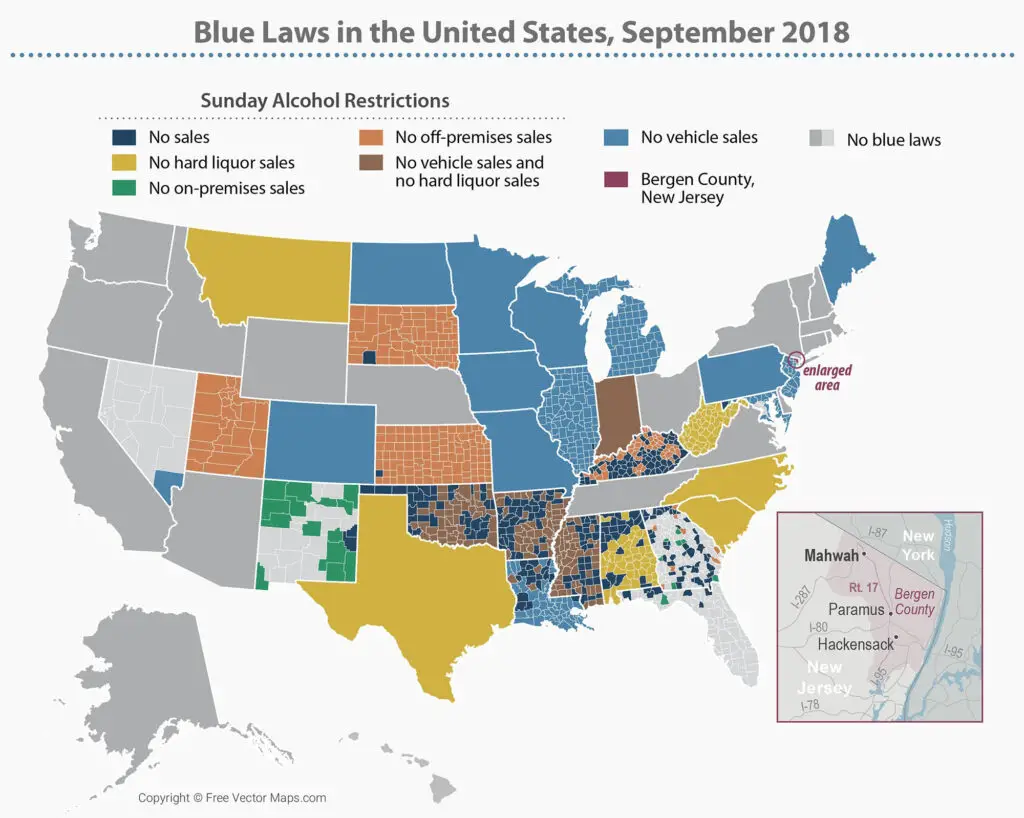
Dietary Guidelines and Health Risks
The Centers for Disease Control and Prevention (CDC) reports that excessive alcohol use is responsible for over 140,000 deaths annually in the United States. To mitigate health risks, the Dietary Guidelines for Americans recommend that adults of legal drinking age either abstain from drinking or consume alcohol in moderation—up to one drink per day for women and two drinks per day for men. Certain individuals, including those under 21, pregnant women, and individuals with specific medical conditions, are advised to avoid alcohol entirely.
What are the alcohol laws like in your area? Share your experiences and thoughts in the comments below!


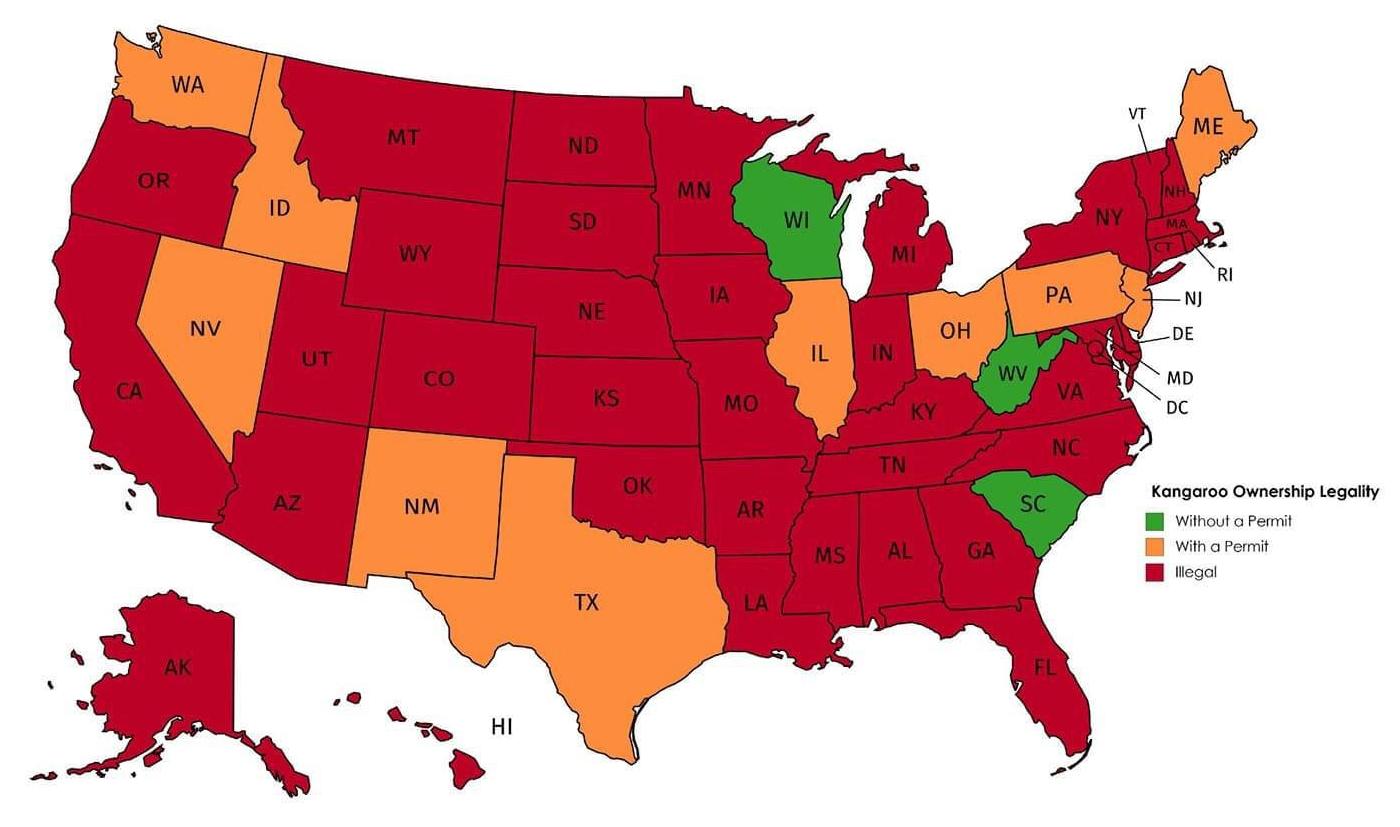




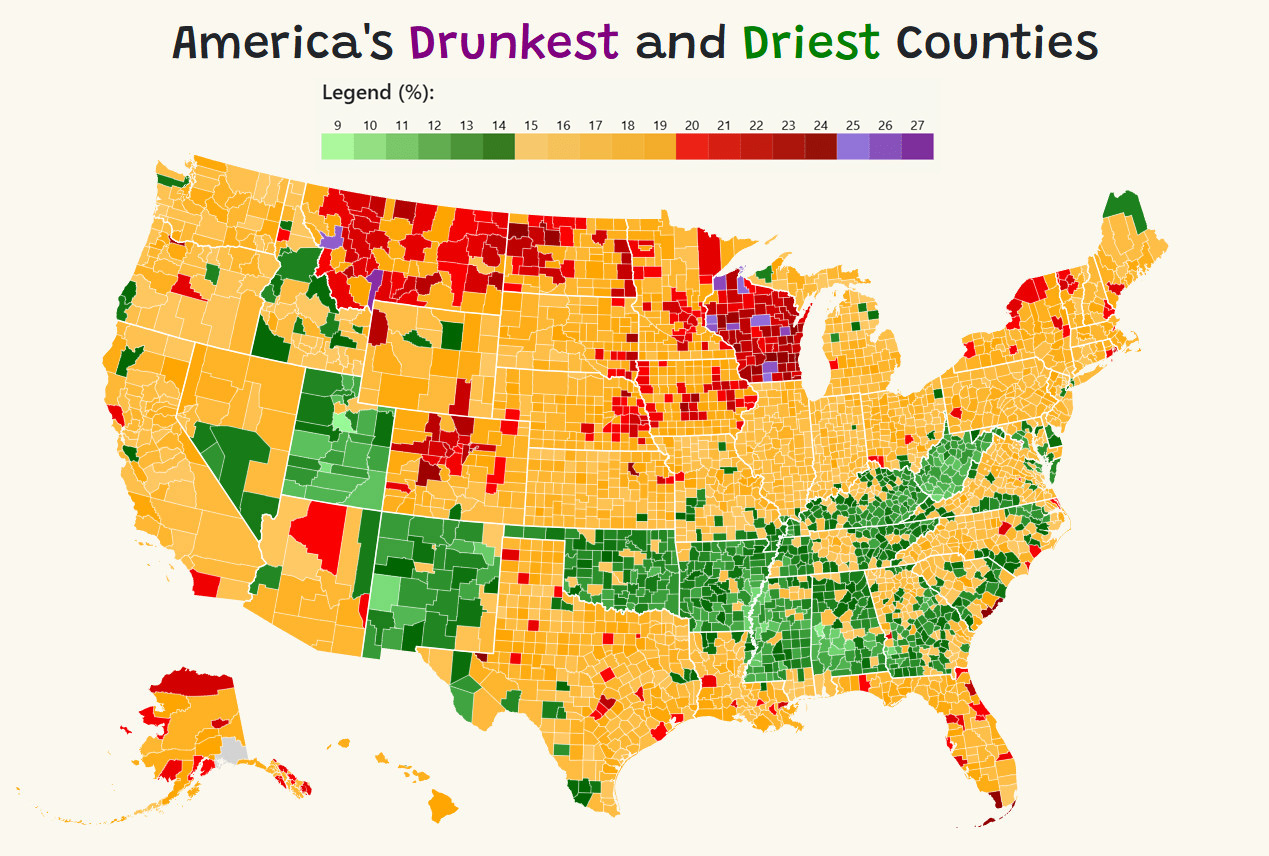
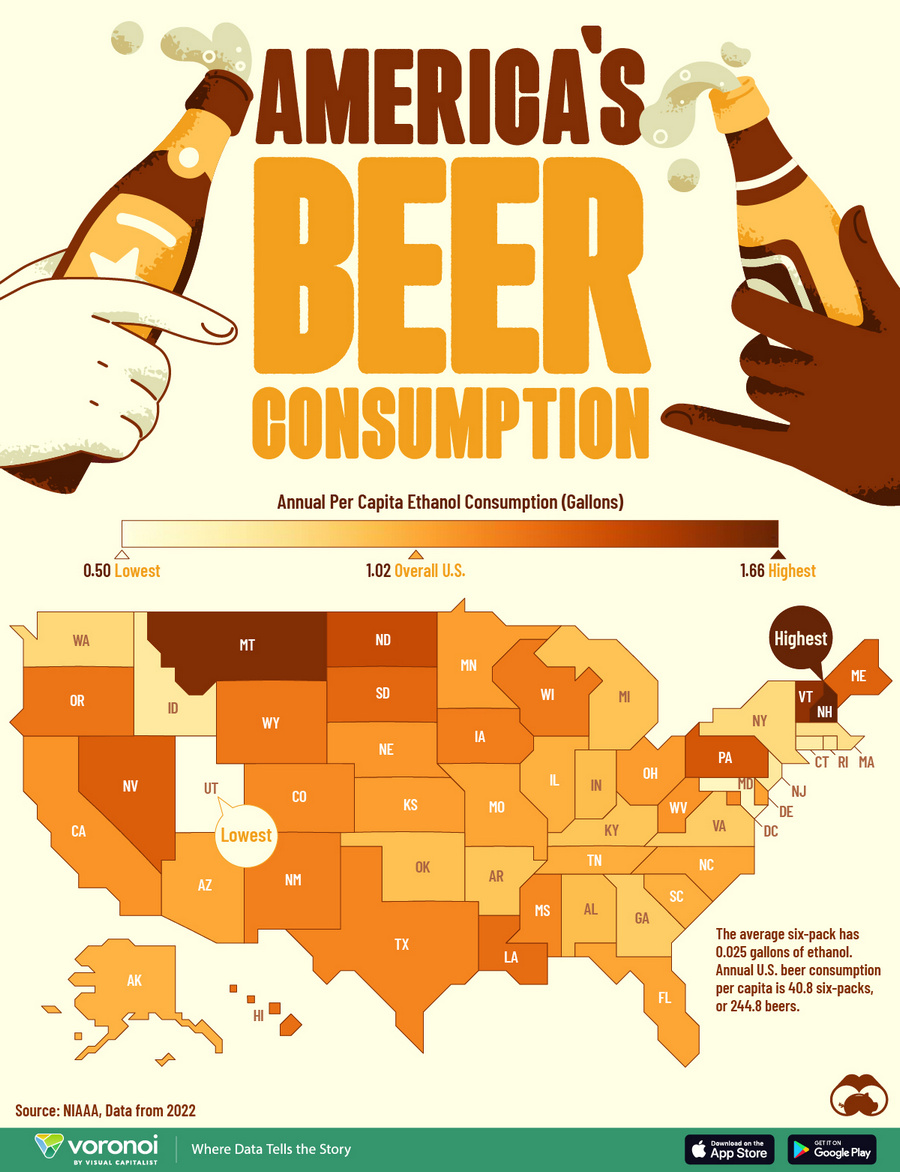
First of all, you cannot drink poisonous technical liquid (ethanol). It is correct to say “to self-poison with alcohol”. Then, not only “people younger than age 21” shouldn’t self-poison, but all the people, and that’s why. Sobriety is not what they tell in “12 steps”, “AA”, “NA”, etc. They lie to us and fool us very much.
Sobriety is a natural human state. It is a natural state of freedom from a desire to self-poison with any intoxicants (tobacco, alcohol, weed and others). It is a natural freedom from being programmed to self-poison with any intoxicants. If a person doesn’t have any information about that (not programmed to self-poison), they don’t want to self-poison at all, because any intoxicants aren’t attractive, desirable or needful for self-poisoning.
But we live in society, where this kind of information is everywhere: Internet, books, magazines, advertising, marketing, medical advices, movies, TV shows, music, entertainment, streets, shops, stores, legislation… So what to do? To learn how to protect Sobriety (with a capital S), for that we have the theory.of Sobriety.
There is an idea to establish and safeguard Sobriety in the United States. For this purpose there is a program of establishing and safeguarding Sobriety (ESS) and the language of ESS. We forget those “drink”, “smoke”, etc. And say only “self-poison” and “poisons”.
I can be happy for Arkansas and Mississippi, they have a lot of counties where alcohol poisons are prohibited, so there is protective legislation for children, teenagers, youth and adults. But they should move on, to educate other counties in their state, learn about Sobriety to clear up territories from this dangerous poison.
Of course, it applies not only to alcohol, but tobacco, nicotine and weed and other intoxicants. We have to convince people to live Soberly consciously. Not because of bans, prohibitions, intimidations, etc. Sobriety is given to everyone by nature, we’re born with Sobriety.
You may ask: if we’re born with Sobriety, why people eventually want to self-poison? But we live in society, where this kind of information is everywhere: Internet, books, magazines, advertising, marketing, medical advices, movies, TV shows, music, entertainment, streets, shops, stores, legislation… People are being convinced that it is OK to self-poison, that it is cool, great, tasty, funny, etc. And people start to believe it. All of this “convincing” is called “Sobriety deprivation”, which is a particularly dangerous type of social parasitism.
Sobriety is being deprived with informational methods. Sobriety deprivation is possible only through deception. You see? They convince people to self-poison. Without it, people doesn’t want to self-poison with anything.
But I want to focus on the idea: you need to convince people to not to want to self-poison.
It is possible. To do that you have to know and follow the theory of Sobriety.
Just imagine consciously Sober United States…
If you want details, e-mail me. If you want to establish and safeguard Sobriety in your county or in your state, e-mail me